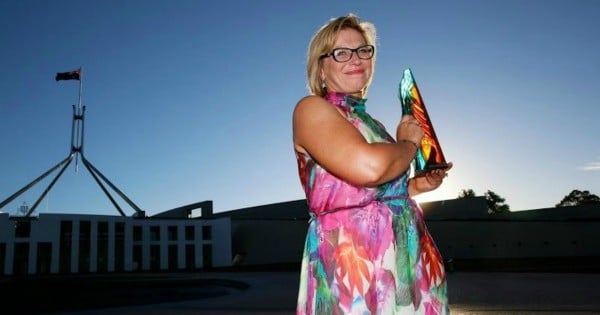
Warning: This article deals with sexual violence and assault.
Over the last two years, Australia has begun to confront those aspects of its character that contribute to the epidemic of violence against women. Pressed by advocates like Rosie Batty, politicians, media outlets and the public have kept domestic violence at the forefront of the nation’s consciousness and done much to reduce the historic stigma and silence on the issue.
But there’s a hole in the national conversation around domestic violence, particularly in regards to men who want to be part of the solution, while not necessarily recognising ways in which they may be part of the problem. At the moment, individual ‘action’ for men consists of broadly positive, impersonal statements or sentiments — it might involve signing a petition, taking a White Ribbon pledge, posting a selfie or going to an anti-domestic violence round of the cricket or footy.
These actions, while well-intentioned, miss an extremely important point that many men don’t consider. The biggest and most immediate priority for men who say they’re against domestic and sexual violence is to recognise that men they know and care about are entirely capable of being harassers and abusers, and that they have an obligation to proactively and vigorously confront those men — friends, family members, coworkers — on their behaviour.
That sounds easy, but it’s not. “Saying no to violence against women” is easy when the guy doing it is some vague, hypothetical Other in your head, or a drunken yob who fits your preconceptions of what a violent man looks like.
But when you hear on the grapevine that a friend of yours creeps on women at parties, or that the girlfriend he’s always fighting with has bruises, and you ignore it or make excuses like “but he’s a really good guy,” you are not being neutral or “staying out of it”.


Top Comments
I agree with this article.
Calling out DV with the perpetrator is difficult when he or she (some perpetrators are women) is your friend.
I am not sure that it is fair to only expect supportive men to call out DV. I'm an opinionated woman and I would have trouble telling a friend that they abuse their power over their spouse, kids, colleagues or friends.
Is it wrong to keep quiet or just sub-optimal?
For me, the reality is that if it is not clear-cut, or not "that bad", then I will avoid the conversation even as I steer it toward emotional intelligence and power imbalances.
I have a friend who tells me her husband is violent towards her (has pushed her and grabbed her throat and gets very angry when she says something he doesn't like). I have given her my non-judgemental support, told her she deserves better and will help her if/when she decides to leave. My friend has decided to stay with her husband (there are kids involved). She hasn't told her family. Should I or my husband confront her husband? My husband won't because he doesn't have the best relationship with my friend. If I did, I'm sure my friend would cut contact with me (seen it happen before). What should I do?
It's not you or your husbands job to take responsibility for her choices. She is an adult not an infant isn't she? First, who is to say your judgement is better than hers when she has all the facts? Second, you have heard only one side, how do you know you have all the facts and are hearing the truth?
Obviously you care about her and that's good, but you've made the offer to help already and that's enough.